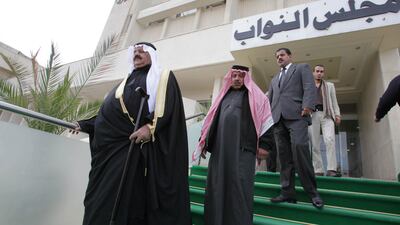In drafting its first-ever law on centuries-old tribal customs, Jordan is proving that tribal justice can not only exist in the 21st century, but it can be an integral part of a modern civil state.
Jordan’s interior ministry is putting the finishing touches to the “tribal customs law”, which aims to unify, regulate and update tribal justice and customs for the modern world.
The legislation sets standards for holding a tribal atwa (reconciliation), the payment of diyyeh (compensation) and the jalwa (banishment) of an offender.
Perhaps the most important article in the law is the regulation of jalwa, the eviction and relocation of a person who commits a crime against a rival clan or tribe.
For decades, jalwa has defined parts of Jordan: many prominent tribes had originally been evicted to Jordan from neighbouring Palestine, the Hijaz and Damascus.
Yet each tribe in Jordan has long had its own definition of who must relocate because of jalwa. Some believe the offender, their siblings, parents and even grandparents must be evicted. Others believe that relatives as distant as fifth cousins must all pick up and move.
How many people are affected by jalwa in Jordan each year? Try thousands.
In one case alone in 2012, 105 families – more than 700 people – were uprooted from central Jordan due to the crime of one member. The country’s interior ministry deals with dozens of cases each year, with as many as 22 in 2011 alone.
Those are hundreds of families that must abandon their jobs and businesses, withdraw their children from schools and even drop out of university because of a tribal dispute.
The new law aims to make sure tribal justice does not escalate to collective punishment. Its approach is simple: limit jalwa to the offender and his immediate family.
But by limiting jalwa to the suspect and his family, the law is doing something more: streamlining tribal justice with civil law.
With the penalties and terms of tribal justice equal to those of the law, sheikhs and the government alike believe that over time, Jordanians will eventually forgo tribal “atwas” in favour of the more convenient courthouse.
Rather than undermine it, Jordanian officials say tribal justice can enhance the civil state.
By relocating offenders from the heart of the community through jalwa, the state reduces tensions within the community and prevents the risk of citizens taking the law into their own hands and committing vigilante justice.
By enforcing criminal penalties for violating tribal agreements, the state has put a legal safety net bolstering tribal justice. It prevents exceptional cases, such as a violent dispute within the same tribe, from boiling over due to lack of respect for an atwa.
In Jordan, the word of the tribes and the rule of law now both must be respected.
Jordanian officials believe tribal justice can be used as conflict resolution and reconciliation, helping communities move on well after courts or sheikhs have made their decision and to prevent retaliatory attacks and a cycle of violence.
In this way, tribal justice can reach citizens in a way no court or government order could.
Tribal decisions are permanent, their arbitrators part of the community, their enforcers the average citizen – all in cooperation with the state.
Under the new law, tribes and clans can enforce decisions and uphold the rule of law in villages and Badia desert encampments beyond the immediate reach of the police.
The new tribal law must first navigate its way through parliament, a complex maze of personal and special interests where many of Jordan’s finest pieces of legislation have met an untimely end.
Yet should it pass early next year, it will set a new standard for the country.
Jordan is set to prove that tribal customs can not only endure in the 21st century – they can help lead it.
Taylor Luck is a political analyst and journalist in Amman

